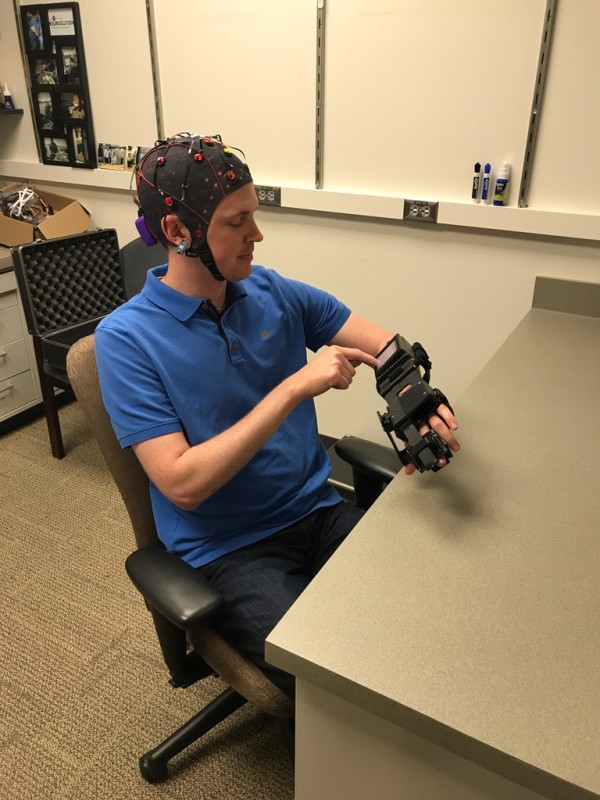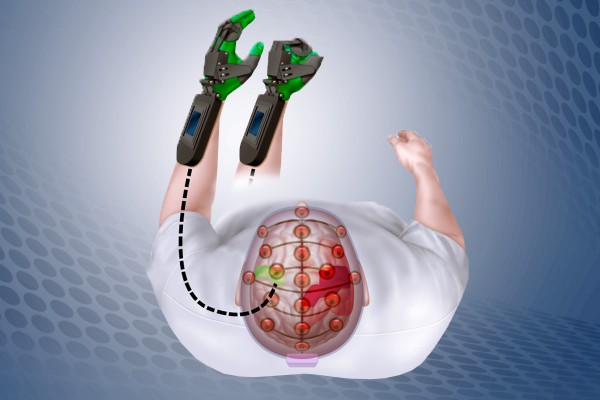
Stroke patients have been able to regain some control over their hands thanks to a computer and exoskeleton system they can control with their minds, new research claims.
A study by the Washington University School of Medicine in St Louis in the US used a computer able to detect electrical activity in the brain, combined with an exoskeleton to trigger movement in paralysed limbs.
It says that by mentally controlling the device via the computer, patients were able to train uninjured parts of their brains to take over functions previously done by the now injured parts of the brain.

The researchers explained that in general, movement is controlled by the opposite side of the brain to where the movement occurs, but a small part of the brain on the same side can also play a role in triggering movement.
The scientists created the Ipsihand, an exoskeleton-like device that fits like a brace over a paralysed hand and connects to a cap that detects signals in the brain and then powers movement in the limb.
The cap takes the small signal from the uninjured side of the brain and uses that to power the movement, which scientists say has now helped some involved in the study to regain some movement in injured limbs.
Professor Eric Leuthardt, the study’s co-author said: “We have shown that a brain-computer interface using the uninjured hemisphere can achieve meaningful recovery in chronic stroke patients.”

During the 12-week test of the device with patients, the scientists carried out motor skill tests every fortnight, scoring patients on their motor functions, and by the end of the course found an average increase of 6.2 points.
“An increase of six points represents a meaningful improvement in quality of life,” Professor Leuhardt said.
“For some people, this represents the difference between being unable to put on their pants by themselves and being able to do so.”